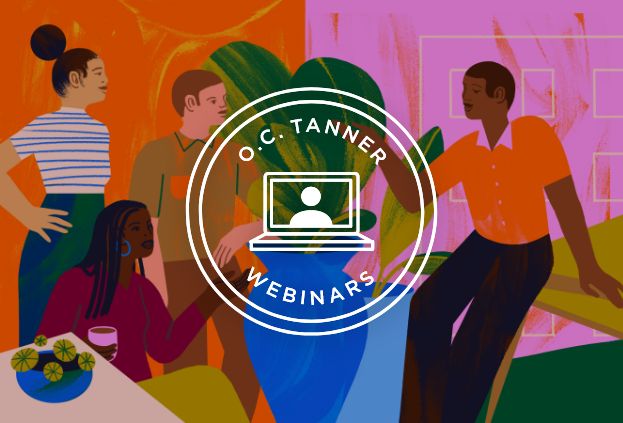Equitable Flexibility: Making It Work in Your Organization

Updated on
March 18, 2025
18
March
2025
In today's ever-evolving work landscape, the concept of workplace flexibility has taken center stage. Employees across the globe have increasingly demanded a more equitable and accommodating work environment that acknowledges their unique needs.
The COVID-19 pandemic accelerated the adoption of flexible work arrangements, demonstrating their benefits for both employees and businesses. However, some organizations are now returning to rigid routines, missing out on the loyalty, innovation, and access to talent that flexible workplaces can provide.
“When I think flexibility,I think not always having to be there right between eight and five. Yes, I’m definitely going to get my work done, but just trust me to do it in the parameters that I need to, because I do have a life also.”
—Focus Group Participant, Office Assistant
What does equitable workplace flexibility mean?
Equitable workplace flexibility is about giving employees a sense of governance over their work and time. According to the research in our Global Culture Report, equitable flexibility is the way forward—and it encompasses more than just the where and when of work. There are five essential contributing factors to achieve equitable flexibility:
- Leadership support
- Organizational support
- Employee empowerment
- Work choice
- Time management
Practically speaking, employees want accommodations for common scheduling conflicts, such as medical appointments, childcare, or adapting work tasks. But workplace flexibility goes beyond balance—it's about giving employees a say in how they work and how they spend their time outside work.
What are the benefits of offering more workplace flexibility?
Organizations that prioritize equitable flexibility gain not only satisfied employees but also loyal, innovative, and motivated teams. Research shows that when employees are content with their work flexibility, they are more likely to promote their organization as a great place to work and remain with it for another year.

Moreover, flexibility helps build trust between employees and their leaders. Employees with high flexibility in their roles are more likely to feel trusted by their leaders to get the job done. This trust is essential for fostering a positive work environment.
How to integrate flexible workplace practices
While not all roles can accommodate the same level of flexibility, organizations can find creative ways to integrate more flexibility into every position. This can lead to new ideas, innovations, and process improvements that benefit both employees and the business.
To provide equitable flexibility, organizations should:
1. Explore flexibility in all job roles
While flexibility may vary by role, every employee should have some degree of flexibility in how they work, what they work on, and how they manage their workday. Leaders should tailor flexibility to fit their team members' needs.
2. Know employees’ unique needs
Leader support is crucial for equitable flexibility, and regular one-to-one meetings can help leaders understand their employees' needs better. Practices such as empathy, trust, and providing autonomy are key to integrating flexibility into the employee experience.
3. Give employees flexibility with their time at work
Allow employees to take time away from work when needed, and ensure leaders support and respect this time off. This demonstrates trust and care for employees' well-being.
4. Offer employees more than flexible time
Provide opportunities for employees to have a say in their work tasks, training, special projects, and leadership development. Autonomy over work increases engagement and job satisfaction.
Take the next step towards equitable workplace flexibility
Equitable workplace flexibility is not just a perk but a necessity for today's organizations. It's a win-win scenario, benefiting both employees and businesses. To retain talent, keep employees engaged, and foster innovation, organizations must prioritize flexibility and ensure it's supported by leadership and aligned with employees' unique needs. By doing so, they can create a workplace where everyone thrives, leading to increased job satisfaction and better business outcomes.
For more on equitable flexibility, and the latest research on global workplace trends, read our Global Culture Report.
A research analyst with nearly 20 years’ experience, Christina uncovers employee perceptions and writes about the trends, insights, and best practices that create workplace cultures where people thrive. She uses her background in conducting and publishing primary research to tap into what the data says and why it matters to modern leaders. Christina has a bachelor’s in sociology from the University of Michigan and a master’s in marketing from Northwestern University.
A research analyst with nearly 20 years’ experience, Christina uncovers employee perceptions and writes about the trends, insights, and best practices that create workplace cultures where people thrive. She uses her background in conducting and publishing primary research to tap into what the data says and why it matters to modern leaders. Christina has a bachelor’s in sociology from the University of Michigan and a master’s in marketing from Northwestern University.
A research analyst with nearly 20 years’ experience, Christina uncovers employee perceptions and writes about the trends, insights, and best practices that create workplace cultures where people thrive. She uses her background in conducting and publishing primary research to tap into what the data says and why it matters to modern leaders. Christina has a bachelor’s in sociology from the University of Michigan and a master’s in marketing from Northwestern University.




